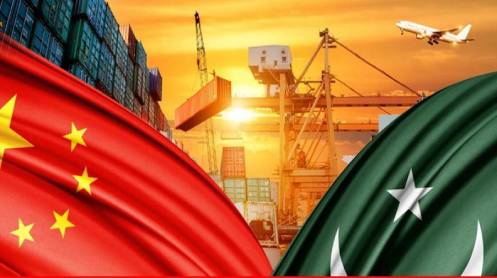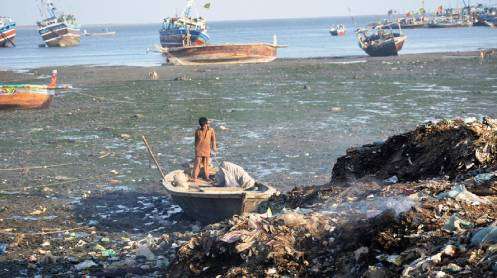ISLAMABAD: On Thursday, Pakistan formally requested China to reschedule its debts as unpaid dues for China-Pakistan Economic Corridor (CPEC) power projects surged by 44%, reaching Rs401 billion by the end of the last fiscal year. These outstanding payments, violating the 2015 CPEC Energy Framework Agreement, are hampering financial and commercial relations between the two nations.
Finance Minister Senator Muhammad Aurangzeb and Energy Minister Sardar Awais Laghari met with China’s Finance Minister and the President of China Export and Credit Insurance Corp (SINOSURE) to address the issue. SINOSURE had insured the loans that Chinese companies took from Chinese banks for projects in Pakistan.
Pakistani officials proposed an eight-year extension for repaying energy debt, converting US dollar-based interest payments to Chinese currency, and reducing overall interest rates for both CPEC and non-CPEC Chinese-funded projects. These measures aim to lower energy costs and secure International Monetary Fund (IMF) approval for a $7 billion bailout package.
The finance ministry reported that the Pakistani ministers had a “useful meeting” with Chinese Finance Minister Lan Fo’an and the SINOSURE president in Beijing. Discussions focused on Pakistan’s latest reform agenda. The Pakistani ministers expressed confidence that SINOSURE would continue supporting ongoing and new projects under the second phase of CPEC, now led by the private sector.
However, the finance ministry did not confirm whether China agreed to extend the loans or reduce the interest rates, which are critical for alleviating Pakistan’s balance of payments pressure and reducing energy costs.
Pakistan has breached CPEC agreements by failing to make timely payments for power purchased from Chinese plants. This has made SINOSURE hesitant to fund a new coal-fired power plant and two hydroelectric plants.
Power ministry documents revealed that as of June 2024, outstanding dues to Chinese power plants surged to Rs401 billion, an increase of Rs122 billion or 44% from the previous year. The main reason for the surge is the Power Division’s failure to settle at least 90% of the monthly claims from these power projects. Under the CPEC Energy Framework Agreement, Pakistan was supposed to create a revolving fund with 21% of the power invoices to protect Chinese firms from the circular debt crisis. Instead, Pakistan opened a Pakistan Energy Revolving Account (PERA) at the State Bank of Pakistan (SBP) in October 2022 with Rs48 billion in annual allocations but limited withdrawals to Rs4 billion per month, leading to the current Rs401 billion debt.
The power ministry documents show Pakistan owes Rs88.3 billion to the imported coal-fired Sahiwal power plant, Rs69 billion to the coal-fired Hub power project, Rs70.4 billion to the coal-fired Port Qasim power plant, and Rs53 billion to the Thar Coal project.
The Chinese government has repeatedly raised this issue with Pakistan through diplomatic channels, including Pakistan’s embassy in Beijing and its own embassy in Islamabad. Chinese companies have expressed opposition to any plans to reduce their profit margins or renegotiate the 2015 Power Purchase Agreements.
Receivables for other projects are also increasing, with the Engro PowerGen plant at Rs48.4 billion, the Matiari-Lahore Transmission Line project at Rs22 billion, and the Karot power project at nearly Rs13 billion by the end of last month. Thar Coal Energy Limited’s payables increased to Rs8.5 billion, ThalNova’s to over Rs5 billion, and UEP power plant’s receivables were less than Rs3 billion.
According to the finance ministry’s press statement, Finance Minister Muhammad Aurangzeb highlighted the importance of China-Pakistan financial and banking cooperation, thanking China for its support. He informed the Chinese side about Pakistan’s economic reform agenda, including tax revenue generation, energy, and state-owned enterprise reforms. He described the recently concluded agreement between the IMF and Pakistan as an important enabler to execute the reform agenda.
Energy Minister Sardar Awais Laghari outlined ongoing energy sector reforms and the government’s commitment to overcoming operational and organizational challenges.
Story by Shahbaz Rana







